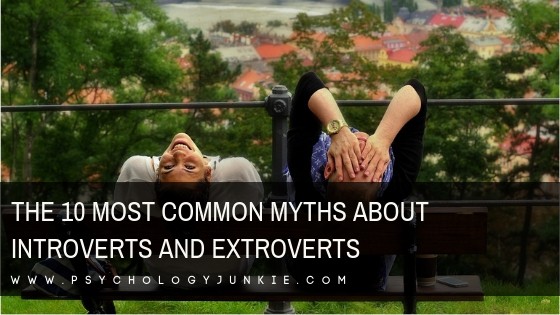The Four Personality Types INTJs Clash with the Most (and How to Connect)
As an INTJ, I’d like to say we know how to get along with just about everyone. After all, as intuitives it’s fairly easy for us to switch perspectives and understand different points of view. But at the same time, there are certain types we do tend to clash with. And we’re not always as open-minded as we should be.
So Who Do INTJs Not Get Along With?
According to our survey of over 80,000 people (you can take the survey here), the types they clashed with the most were ESFJs, ISFJs, ESFPs, and ESTPS. Why? It often stems from a difference in cognitive functions. INTJs are wired to focus on abstract ideas, impressions, and symbols. They’re also focused on creating structure, organizing resources, and bringing goals to fruition.

Other types? Sure, some share similar perspectives and priorities, but many are using completely different criteria to form perceptions and judgments. Some people are driven to enforce group values, age-old traditions, or spontaneous action—all areas where INTJs might struggle to find common ground.
To be clear, these aren’t bad relationships—just challenging ones. The good news? With a little understanding, these differences can become strengths. Let’s dive into why these types clash and how they can learn to connect.
Not sure what your personality type is? Take our personality questionnaire here. Or you can take the official MBTI® here.
The Four Personality Types INTJs Clash with the Most (and How to Connect)
#1 ESFJs and INTJs
ESFJs are the ultimate friendly hosts. They’re warm, outgoing, and invested in making sure everyone is happy. I call them “The Defenders” because they’re always looking out for others, whether it’s organizing family traditions or checking in on a friend who’s having a rough day. But for the independent, logic-driven INTJ, they can feel a little… overwhelming.
Why is the ESFJ always trying to talk to everyone? The INTJ might interpret this as “needy.”
Why is the INTJ so distant and blunt? The ESFJ might interpret this as “insensitive.”
Why is the ESFJ talking about day-to-day experiences in detail? The INTJ might interpret this as “boring.”
Why is the INTJ so interested in vague, abstract concepts? The ESFJ might interpret this as “boring.”
One of the biggest challenges between these two types is their completely opposite cognitive wiring. INTJs rely on Introverted Intuition (Ni) to focus on abstract ideas and long-term goals, while ESFJs lead with Extraverted Feeling (Fe), prioritizing harmony and the needs of the group. To an INTJ, the ESFJ might seem overly concerned with social expectations or prone to changing their values to fit the crowd. To an ESFJ, the INTJ might come across as cold, unapproachable, or even rude.
I had an INTJ client say, “My ESFJ coworker is always asking how I’m feeling or trying to get me to join in on group activities. I just want to focus on my work, but they act like I’m being rude if I don’t participate.” On the flip side, an ESFJ once told me, “The INTJ on my team is so blunt and distant. It’s like they don’t care about anyone else at all.”
Another point of tension is how these types handle decisions. ESFJs tend to bring up past experiences and shared values to guide their choices. In contrast, INTJs want to innovate and focus on metrics more than feelings. To the INTJ, the ESFJ might seem stuck in tradition. To the ESFJ, the INTJ’s futuristic mindset can feel impractical or even dismissive of what’s already working.
How ESFJs and INTJs Can Connect
Despite their differences, INTJs and ESFJs can learn a lot from each other. ESFJs can help INTJs step out of their heads and connect with the people around them, while INTJs can inspire ESFJs to think be more perceptive of patterns and embrace new ideas.
Here’s what works:
- For INTJs: Recognize that the ESFJ’s warmth and outgoing nature aren’t “for show”—they’re trying to connect. Just as you can’t help but spot patterns and strategies, they can’t help but try to connect and interact with people and adjust for their emotions.
- For ESFJs: Give the INTJ some space. They’re not avoiding you—they’re just recharging.
- For INTJs: Express a positive message, even in a small way. A simple “thank you” or acknowledgment can mean a lot to an ESFJ.
- For ESFJs: Be open to the INTJ’s ideas, even if they seem unconventional. They’re not dismissing tradition—if you have an approach grounded in logic, they’ll hear it. But they also need you to be open to thinking outside the box for new solutions.
When these two types respect each other’s strengths, they can create a balanced partnership that’s both people-focused and forward-thinking. It’s not always easy, but the effort is worth it.
Find out more about ESFJs: The Four Personality Types ESFJs Clash with Most (and How to Connect)
#2 ISFJs and INTJs
ISFJs are the guardians of tradition, the keepers of details, and the nurturers of the people they love. I call them “The Protectors” because they’re so devoted to making life warm, stable, and secure. They’re the ones who remember your birthday, make sure the family traditions never die, and keep things running smoothly behind the scenes.
But for INTJs, who like to trailblaze new paths rather than focus on past methods, ISFJs can feel a little… rigid. The INTJ might wonder, Why are we still talking about how Grandma made her pies? Who cares about the construction on Main Street? Meanwhile, the ISFJ might feel like the INTJ is dismissive or ungrateful, thinking, Why can’t they appreciate the effort and history behind this? Why do they seem so bored when I’m sharing the details of my life?
The Core of the Clash
The main challenge between INTJs and ISFJs comes down to how they process information and approach the world. INTJs lead with Introverted Intuition (Ni), which focuses on patterns, abstract ideas, and long-term possibilities. ISFJs, on the other hand, lead with Introverted Sensing (Si), which values personal experience, concrete details, and memories.
This difference often creates a disconnect. INTJs might feel like ISFJs are too focused on the past, unwilling to break from tradition or try new things. ISFJs, in turn, might find INTJs overly focused on the theoretical, dismissing practical concerns or the emotional impact of their decisions.
Time and time again I’ve spoken with INTJs who find the focus of ISFJs uninspiring or even dull. ISFJs like to talk about their day-to-day lives, their memories, and their interpersonal relationships. And when they do this, they can get detailed, recalling sights, sounds, textures, tastes, and sinking into the memory as they speak.
In the same way, ISFJs can find INTJs too “harsh” due to their directness and logic-over-feelings perspective. They may also find their abstract concerns “vague” or “impractical” because they seem so distant from the present moment. ISFJs tend to be conscientious and sensitive, and INTJs, in their bluntness, may inadvertently hurt their feelings.
How ISFJs and INTJs Can Connect
While these two types approach life differently, they can also help each other grow and explore new pathways if they respect each other. ISFJs can help INTJs see the beauty in the past while being supportive and emotionally insightful. In the same way, INTJs can help ISFJs explore new paths, strategically go after their goals, and focus on their own needs instead of putting themselves second to others.
Here’s what works:
- For INTJs: Try to respect the ISFJ’s need for routine, tradition, and emotional connection. This is the way they are wired and it’s part of what keeps communities thriving in the world. Show appreciation for their effort and attention to detail.
- For ISFJs: Be open to the INTJ’s ideas, even if they seem unconventional. They’re not rejecting your traditions—they’re trying to explore new ones.
- For INTJs: Try to notice the little things the ISFJ does to care for you, whether it’s making your favorite meal or remembering details about your life. A small acknowledgment can go a long way.
- For ISFJs: Give the INTJ space to think and strategize. They’re not being distant—they’re working through their ideas. And if they seem overly blunt, that’s just their way of speaking. In their own way they’re trying to be sensitive, by being efficient with your time (and theirs).
When these two types meet in the middle, they can create a partnership that’s both grounded and visionary. ISFJs bring stability, care, and attention to detail, while INTJs bring innovation, strategy, and big-picture thinking.
#3 ESFPs and INTJs
ESFPs are the ones who’ll turn a dull Tuesday into an adventure, who live fully in the moment and aren’t afraid to dive headfirst into life’s experiences. For INTJs, who are all about careful planning, contemplation, and focused introspection, this can feel a little… chaotic.
But here’s the thing: INTJs and ESFPs are what’s known as “duals.” They use the exact same cognitive functions, just in the opposite order. This means that deep down, they actually admire what the other type brings to the table—even if it doesn’t always feel that way in the moment.
The Core of the Clash
For INTJs, the ESFP can seem overly impulsive, overly focused on the present, or even shallow. The INTJ might think, Why are we wasting time on this fleeting experience when we could be building something meaningful? Meanwhile, the ESFP might look at the INTJ and wonder, Why are they so stuck in their head? Life is happening right now, and they’re missing it!
One INTJ client shared, “My ESFP friend is fun to be around, but they have zero focus. They’re always jumping from one thing to the next—it’s exhausting!” On the flip side, ESFPs can feel like the INTJs are spending their life perpetually kicking their can down the road, planning for the future while being blind to the present.
Another challenge comes down to their problem-solving approaches. INTJs rely on Introverted Intuition (Ni) to see patterns, predict outcomes, and focus on the future. Then they take strategic action, focusing on pros, cons, metrics, facts, and logical outcomes. ESFPs, on the other hand, lead with Extraverted Sensing (Se), which acts in the here and now, soaking up experiences and responding in real time. Then they focus on their personal values, convictions, trusting their heart to guide them.
To the INTJ, the ESFP’s focus on the present can seem frivolous. To the ESFP, the INTJ’s long-term planning can seem disconnected from reality.
In turn, an INTJ’s bluntness and focus on metrics and goals can seem overly impersonal, whereas INTJ might find ESFP’s overly emotion-driven or blind to the most sensible long-term solutions.
How ESFPs and INTJs Can Connect:
Even though INTJs and ESFPs are so different, they also have the potential to bring out the best in each other. They are both strong in areas where the other is weak; but they both have the same cognitive functions. They will still value each other’s perspectives to some degree, even if they feel baffled at first. This is why many typologists call them “duals.” Even if INTJs may shake their head at the way ESFPs are so spontaneous and impulsive, they have a part of themselves that knows they need more of that in their lives. And even though ESFPs might roll their eyes at the INTJ’s long term focus, they know that’s an area they need to advance in.
Here’s what works:
- For INTJs: Appreciate the ESFP’s ability to live fully in the moment. Try to join them in their fun from time to time, while gently reminding them if their decisions could have a negative long-term effect.
- For ESFPs: Recognize that the INTJ’s planning isn’t about being a buzzkill—it’s about creating something meaningful and lasting.
- For INTJs: Try to honor the ESFP’s feelings, even if you don’t always agree. Acknowledging their feelings with simple words of affirmation can go a long way.
- For ESFPs: Give the INTJ space to think and strategize. They’re not ignoring you—they’re working through ideas in their head.
When these two types learn to respect their differences, they can create a dynamic partnership that’s both grounded and adventurous.
Find out more about ESFPs: The ESFP Se-Te Loop
#4 ESTPs and INTJs
I call ESTPs “The Daredevils” because they live for excitement, adventure, and thinking on their feet. They’re rapid problem-solvers, fast movers, and love a good challenge. For the methodical, future-focused INTJ, they can feel a bit loud and impulsive. It’s like the ESTP is always driving full speed ahead while the INTJ is still carefully mapping out the route.
The clash often boils down to how these two types approach decisions and the world around them. INTJs lead with Introverted Intuition (Ni), which focuses on seeing patterns, forecasting outcomes, and planning long-term strategies. ESTPs, on the other hand, have dominant Extraverted Sensing (Se), which focuses on taking action, experiencing the world, and living fully in the present. To the INTJ, the ESTP might seem impulsive or reckless. To the ESTP, the INTJ might seem overly cautious or stuck in their head.
The Core of the Clash
Decision-making is another point of tension. INTJs use Extraverted Thinking (Te) to map out goals, objectives, and organize their world for efficiency. They usually approach their day with a to-do list, a plan, and a structured approach. ESTPs like taking action and making things happen, but their approach is more flexible and spontaneous. They don’t like being roped into a to-do list or a daily plan; they like adjusting as the day unfolds. And when they do make decisions, they don’t like to be rushed. They want to analyze all the facts, understand how things work, and grasp the principles for themselves.
As an INTJ myself with an ESTP husband, I’ve seen these clashes play out in our relationship. I will approach life with a plan and a very particular course of action to reach a set of goals. I have a vision of what I want our life to be and tend to focus fully on achieving that. He approaches life moment-to-moment, adjusting as life happens, prioritizing the joy of the now. Rather than focusing on one vision, he’s open to whatever is available to experience in the present.
Sometimes this means I see him as “unproductive” or he sees me as a “workaholic.” But with work and respect for each other’s differences, we balance each other out. He helps me to see the beauty in the moment and I help him to create a road map towards his longer-term goals.
Then there’s the Se vs. Ni clash. ESTPs notice details, adapt on the fly, and trust their instincts to guide them. INTJs, with their Ni focus, prefer to step back, analyze, and see the big picture before making a move. This can lead to frustration on both sides, with the ESTP wondering why the INTJ isn’t able to jump right into the fun or adventure, and the INTJ feeling like the ESTP isn’t thinking things through.
How ESTPs and INTJs Can Connect
Even though these types are wildly different, INTJs and ESTPs can complement each other well. They may spar over differences in perspective and decision-making, but they can also help each other avoid blind spots in their attitudes.
Here’s what works:
- For INTJs: Appreciate the ESTP’s ability to act quickly and adapt. Count on them when a crisis erupts or you need an immediate, quick solution.
- For ESTPs: Recognize that the INTJ’s slower pace isn’t pointless—it’s careful planning. They’re trying to set you both up for long-term success.
- For INTJs: Try stepping out of your comfort zone and embracing the moment. Let the ESTP take the lead every once in a while—you might just enjoy the ride.
- For ESTPs: INTJs can be skeptical, blunt, and quiet. You may misread this as them being “boring” or uncaring. But if you make space for their approach and find some common goals, you can be an unstoppable team. You bring the quick wit and action and they bring the insight and long-term focus.
You might also enjoy: The 5 Things You Crave in a Friendship, Based On Your Myers-Briggs® Personality Type
What Do You Think?
Do you have experiences with these personality types? If so, we’d love to hear your story! If you have any insights or perspectives to share please leave a comment! Many people are helped in their relationships by learning from others who have experienced similar experiences.














Did you ever hit the nail on the head with this one, Susan. First, I deliberated long and hard about why I often showed as an INFJ but the description did not feel right. I do not absorb others’ feelings; I listen, deliberate and then have ideas how to remedy situations (though not shared) or handle them. Like you, INTJ fits very well. (Linda Beren’s description helped me as well as your clear perceptions.)
My daughter-in-law is ESFJ. We get along because we understand one another. With everyone, she is very guarded about what she shares about herself. Very sensitive. Extremely efficient and task-oriented. If I start to tell a story or experience, (however brief :)) she inadvertently glances at the wall clock. Maybe she’s worried it is going to take too long.
I have an ESTP adult son. Moment by moment, he deals with life as it happens, etc. It is hard to nail him down to be committed to do something specific on a consistent basis. He sees the needs of others and does what he can to help them. Very generous.
This post will be filed under your name in my gmail label. Really a great help. I appreciate the examples you share.
Thank you so much.
Elaine
I feel like, as an INTJ, i tend to clash more with INFPs and ISFPs for many if the reasons you describe in the ESFP. There’s nothing more frustrating than in INP type idealizing in the moment when your trying to be practical and think long term 😬🤣.
I actually get along with ISFJs better. Our shared need for structure and planning works well as long as we try to understand and make space for one another’s sometimes clashing ideologies.